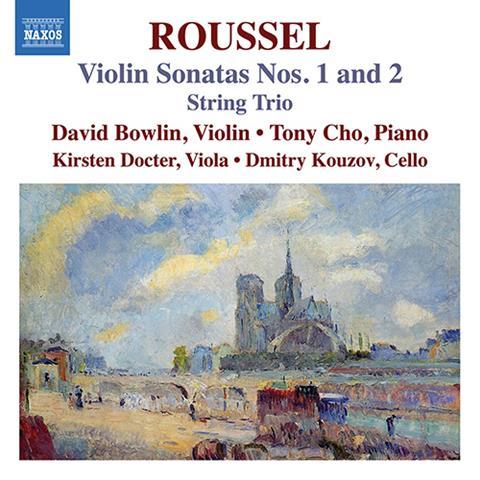No loss of character as a master of the stage turns inward

The Strad Issue: July 2024
Description: No loss of character as a master of the stage turns inward
Musicians: David Bowlin (violin) Kirsten Docter (viola) Dmitry Kouzov (cello) Tony Cho (piano)
Works: Roussel: Violin Sonatas: no.1 in D minor, no.2 in A major; String Trio
Catalogue number: NAXOS 8574577
Albert Roussel’s First Violin Sonata, dating from 1907–8, reflects the French musical milieu of the time. After its soulful opening David Bowlin leaps into the jaunty, rhythmically vital second theme with energy and glistening tone. He produces a rich, woody sound in the darker-hued development and some passionate G-string outbursts in the coda, before giving a supple account of the twisting, restless lines of the second-movement Assez animé, with expressive playing on the lower strings in the slower central section. The dancing final Très animé is upbeat, full of syncopation, punchy accents and crisp staccatos. Throughout the sonata, with its technical demands and touches of theatre, both Bowlin and Tony Cho rise splendidly to its challenges.
The A major Second Sonata of 1924 opens with an Allegro con moto full of changes of character, be they contemplative, aggressive or delicate. In the central Andante a simple melody over a rocking piano figure moves swiftly into double-stopped vehemence and a torrent of demisemiquavers played with flair and dynamism. The Presto finale is an impish romp of rhythmic wrong-footing and eccentric double-stopped dance, all performed with wit and energy.
Read: Eastman School of Music appoints new violin professor
Listing: Oberlin College and Conservatory
Written in 1937, the String Trio is Roussel’s last completed work. Its central Adagio is a profound meditation, played with sustained intensity, with an exuberant gigue to follow. The recording is clear and well balanced.
TIM HOMFRAY











































No comments yet